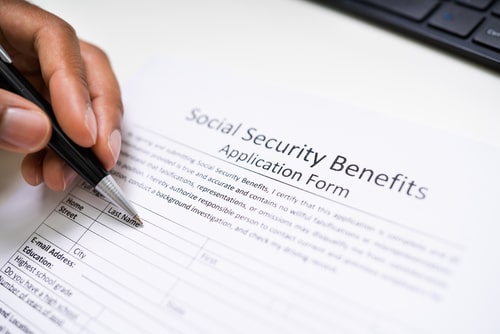Principal Office Located at 1424 Gables Court, Plano, TX 75075
Call Today For a Free Case Evaluation
Common Reasons for an SSDI Denial That You Can Fight
 Getting denied Social Security Disability Insurance (SSDI) feels disheartening. Understanding why you got denied empowers you to fight the decision with an appeal if the grounds seem unreasonable. It helps to understand some frequently cited SSDI denial reasons that disability lawyers can help dispute successfully. A Texas SSDI lawyer can help you figure out what is causing your denial and how you may move forward.
Getting denied Social Security Disability Insurance (SSDI) feels disheartening. Understanding why you got denied empowers you to fight the decision with an appeal if the grounds seem unreasonable. It helps to understand some frequently cited SSDI denial reasons that disability lawyers can help dispute successfully. A Texas SSDI lawyer can help you figure out what is causing your denial and how you may move forward.
Failing To Meet Stringent Disability Criteria
Social Security administrators deny claims because applicants do not meet strict SSDI criteria. Specifically, you must prove an inability to perform previous work or adjusted occupations because of a severe, long-term disability diagnosed by acceptable medical evidence
Perceived Potential for Other Work
Social Security officers often deny claims because they believe the applicant could theoretically find other types of work. They may look at someone’s age, past job skills, or education and assume there are still jobs out there they could do despite their disability. However, the reality is individuals’ actual prospects for finding and keeping employment are often overestimated.
What helps here is having an attorney undertake a vocational assessment, taking a realistic look at the types of jobs someone with your disability could obtain and keep. This involves evaluating factors like the availability of alternate work fitting your limitations locally and whether retraining to gain new skills is feasible. Adding this evidence to your case file adds necessary weight against assumptions you have more significant workforce potential than the facts support. Vocational reviews build a stronger case against denials centered on the perceived capacity for other employment by grounding decision-makers in the real-world challenges disabled individuals face.
Application Errors and Inconsistencies
Another frequent basis for SSDI rejection comes down to applicants themselves inadvertently including flawed information or inaccuracies when filing without legal guidance. Even small application mistakes can set off eligibility flags. For instance, failing to fully disclose all medical providers or listing different disability onset timelines across forms undermines perceived credibility. Make sure to triple-check everything with your lawyer when you appeal.
Health Variances Over Time
SSDI evaluators may perceive medical records showing symptom ebbs and flows as evidence of exaggerated or fraudulent claims about being continuously disabled. However, many chronic conditions like mental illnesses or back issues fluctuate, with periods of less severe symptoms emerging sporadically between acute flares.
Your doctor and lawyer can help present an accurate picture of real functional loss over time despite some ups and downs expected for the conditions in question. This prevents unfair denials centered on scattering good days amidst preponderantly disabling health challenges.
Contact a Dallas, TX, SSDI Lawyer
If you get denied for SSDI, having legal representation on your side may make a difference. A Plano, TX, SSDI attorney can help see the issue and get you on the right path to a potentially better outcome. Call The Law Offices of Coats & Todd at 972-671-9922 for a free case evaluation.

 972-671-9922
972-671-9922





